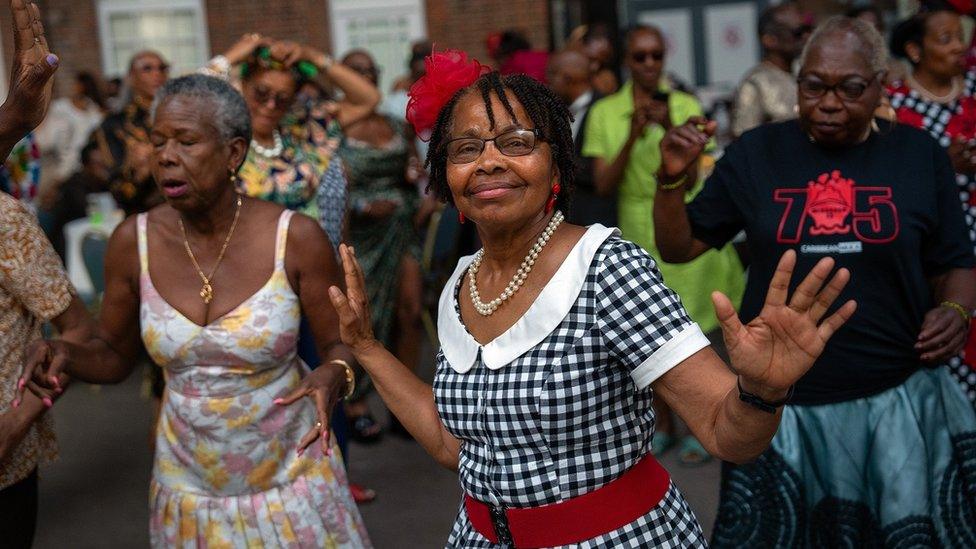Black History Month: 'I want to inspire more young girls like me'
- Published
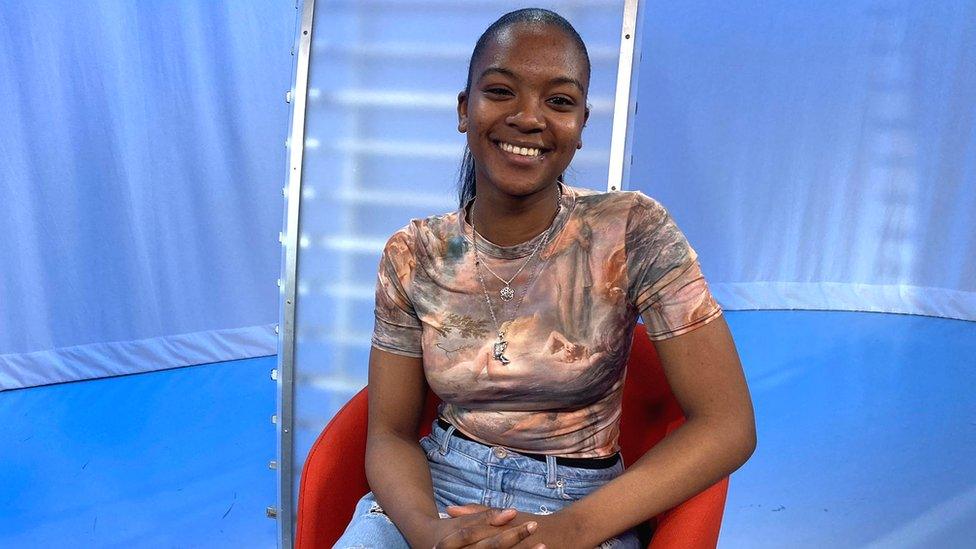
Annie Apakoh has been inspired to act by other black actors like Lupita Nyong'o
Black History Month (BHM) was first celebrated in the UK in 1987, having started in the US in 1976. The University of Bedfordshire has begun its own Proud To Be Black, external initiative, and the BBC has been speaking to students to find out what it means to them and what they hope it can achieve.

'I want to inspire young girls like me'
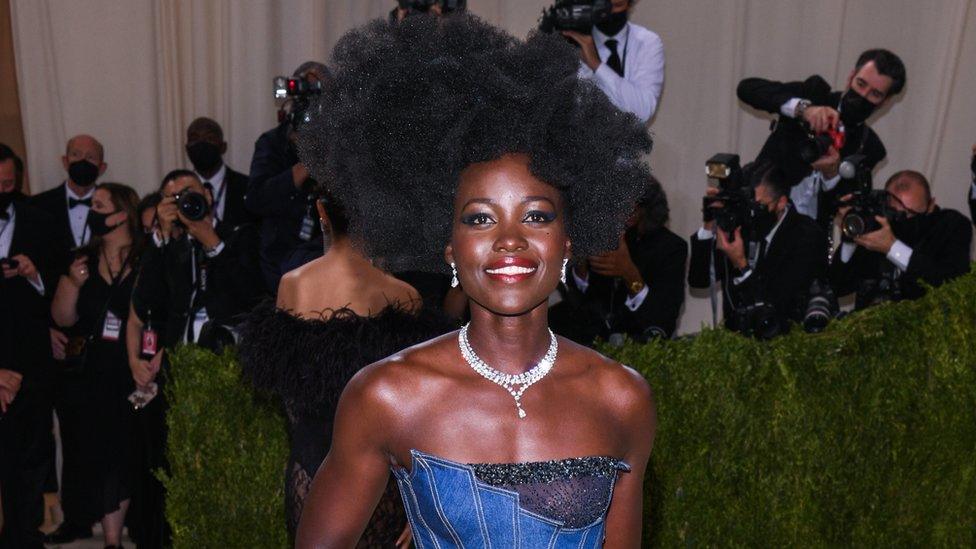
Annie Apakoh says she looks up to actress Lupita Nyong'o who won a best supporting actress Oscar for her role in 12 Years A Slave
Annie Apakoh is in her second year of a degree in media performance in film, TV and theatre and she says BHM is a chance for others to find out "a bit more" about her culture.
"For black people it gives a lot of people the opportunity to deep dive and learn even more about ourselves and our history," she says.
"I want to really inspire more young black females in the industry, to branch out more and chase what they want.
"I've always said I wanted to inspire more young girls like me."
When she was younger, Ms Apakoh says she was lacking in confidence and did not even like her photo being taken.
"But I think watching more movies, with black actresses like Lupita Nyong'o and Dana Gourrier, I look up to them and thought, let me get out of my shyness and just try and be a bit more confident," she says.
"They're inspiring so many young girls and I think that if I could just be a part of that, it would be great."
She says herself and her friends have benefitted from learning about black history, but she believes it needs to go further and be taught in schools.
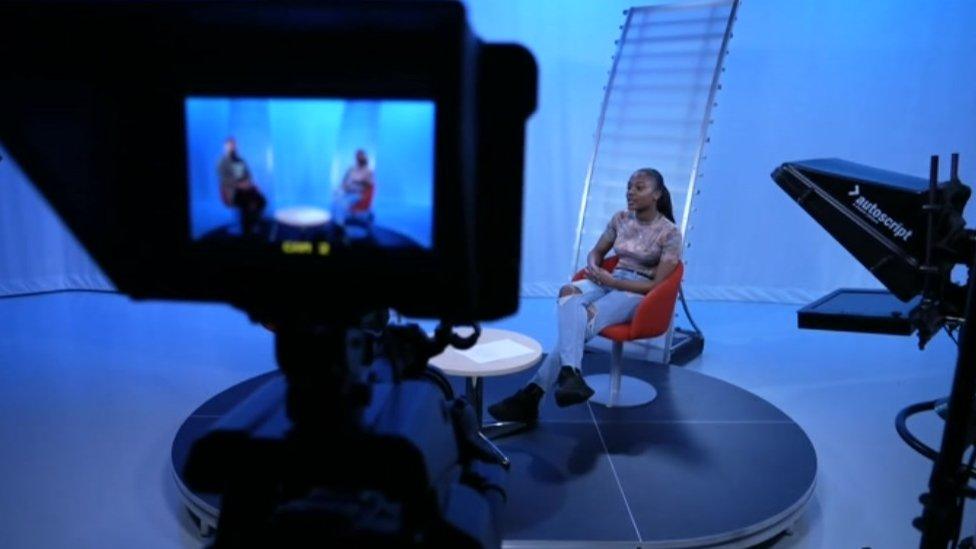
Annie Apakoh is learning about television as part of her course

'BHM instils pride in everybody'
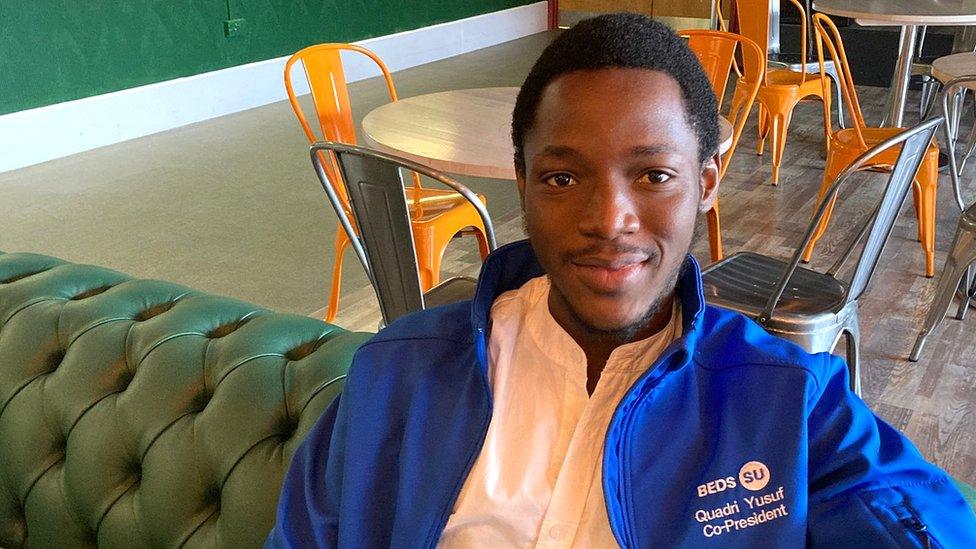
Quadri Yusuf, from Nigeria, is co-president of Bedfordshire University Students Union
Quadri Yusuf, co-president of Bedfordshire Students Union, external, says it is important to celebrate the month as it "enables us to have conversations, unfettered conversations about racism, inequalities and injustice and privilege in this society", and from those conversations come solutions.
His role at the university is to represent some 16,000 students.
He grew up in Nigeria and he says his role models are Martin Luther King Jr, Nelson Mandela and his father.
"It's because of the way he [his father] made me feel - it's not all about race, being black, being white. You just have fight to show equality and choices in every system," he says.
He wants black history to be taught in schools to celebrate, preserve and champion the work of people like the US civil rights leader Dr King, because they "fought for freedom".
"Knowing more about BHM instils pride in everybody, not just the black race, everybody, to ensure that they understand the concept of BHM and not being biased or centred on black people. It's for everybody."
"Being a co-president, as a black person, instils pride in me and shapes the way I act and do things," he says.

'An integral part of British history'
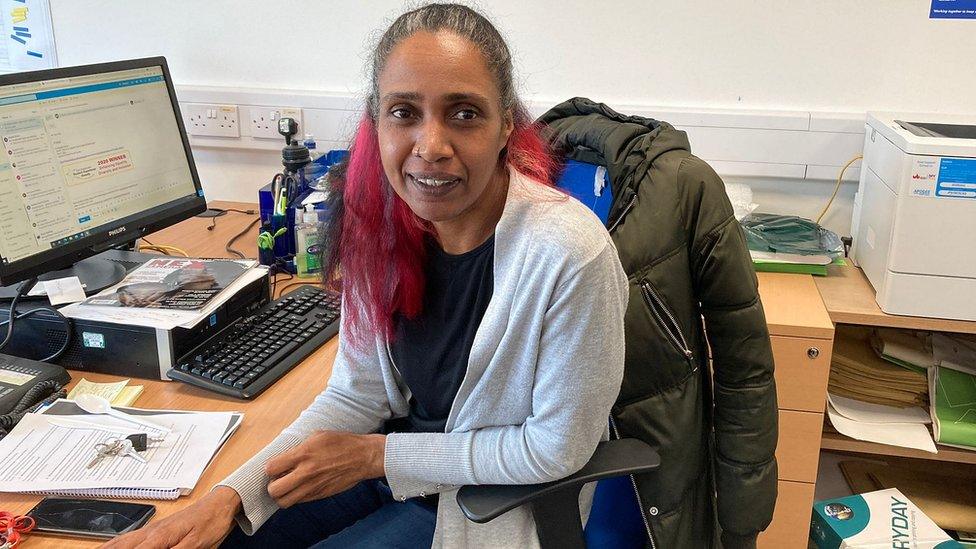
Dr Suzella Palmer works at the university and has had to teach herself about black history she says
Dr Suzella Palmer, a senior lecturer in applied social studies who specialises in criminology, says there is a "lack of black history within the curriculum".
She believes having it formally taught in schools "will be really beneficial to black children so that they understand their history".
"It's important for children from other ethnicities, including white young people, to acknowledge that black history is an integral, important part of British history and there's been a black presence in this country for hundred of years that has been under-acknowledged," she says.
She says her son has told her he is "fed up" of being taught about slavery as this has left a "negative impact on a lot of people and we started to see ourselves as an oppressed people, but there's a lot more to us than that oppression".
Ms Palmer would like the Caribbean slave revolts explained to show "we're people that have the power and means to fight that oppression".
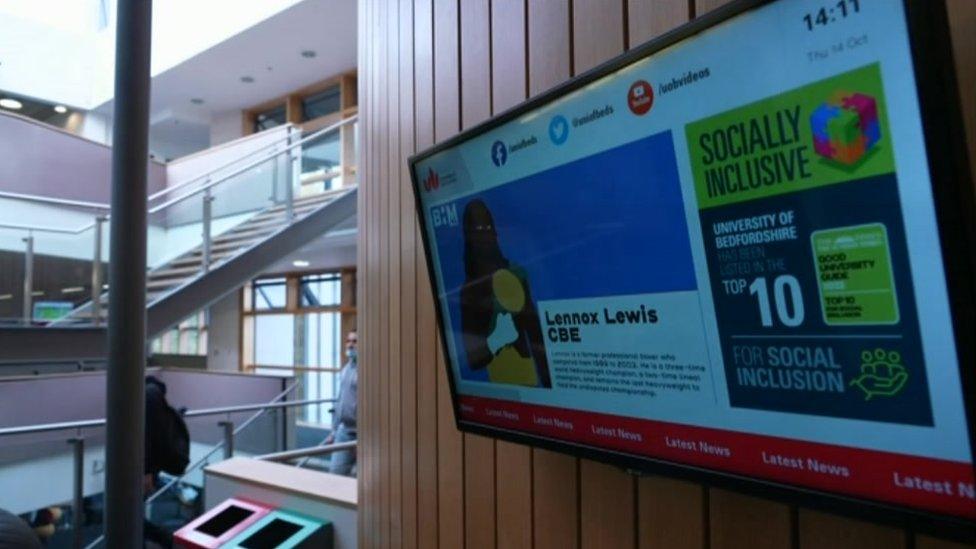
The university wants Black students, staff and alumni to share what makes them proud

Find BBC News: East of England on Facebook, external, Instagram, external and Twitter, external. If you have a story suggestion email eastofenglandnews@bbc.co.uk, external
- Published13 October 2021
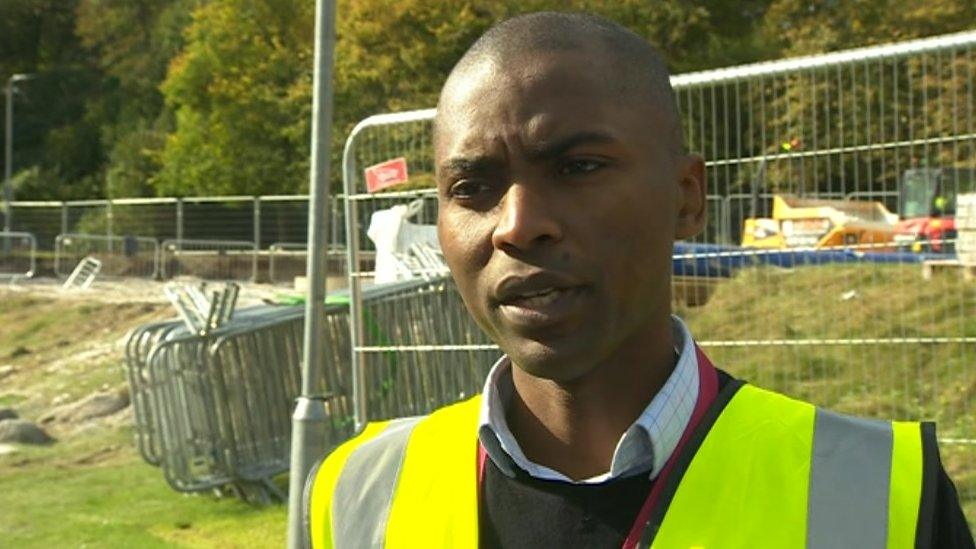
- Attribution
- Published13 October 2021
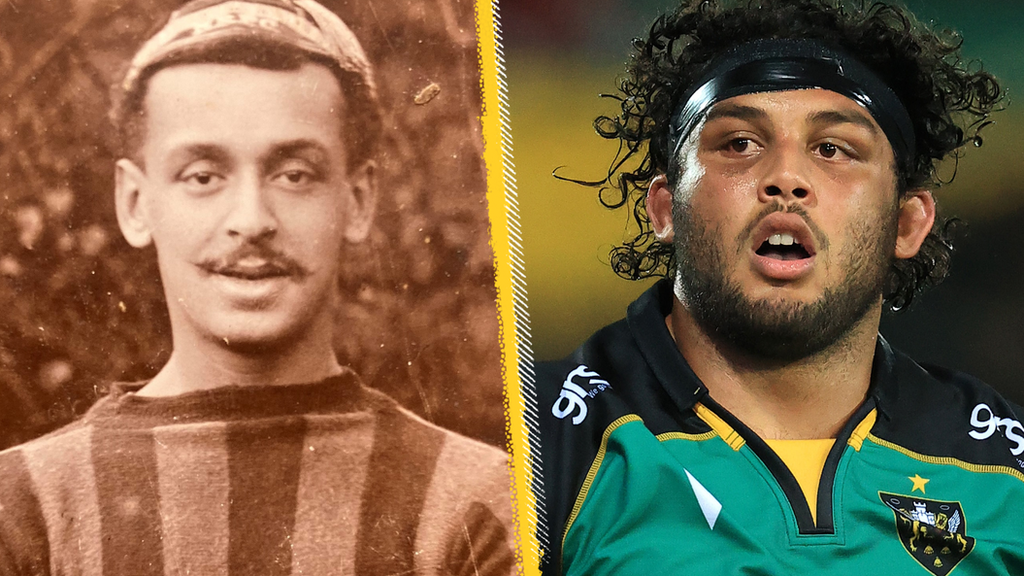
- Published12 October 2021
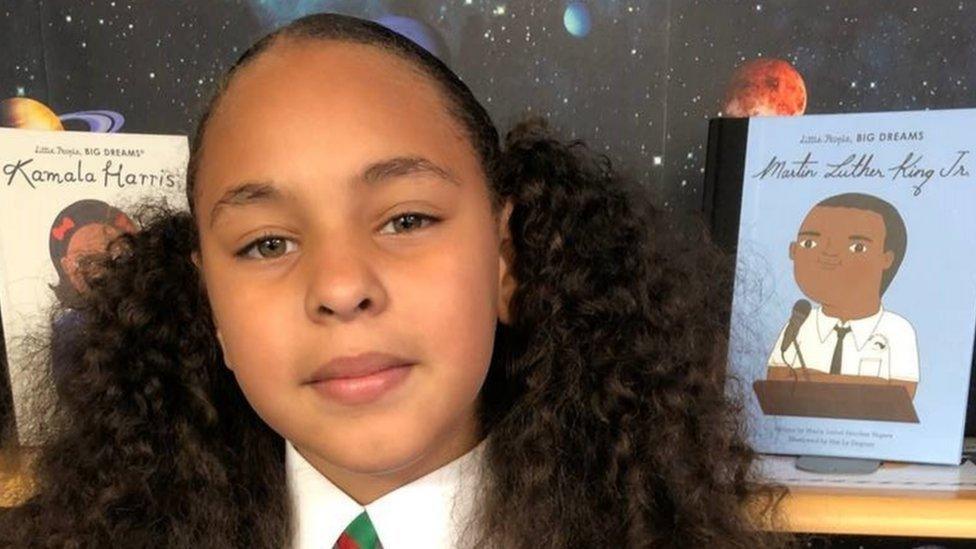
- Attribution
- Published8 October 2021
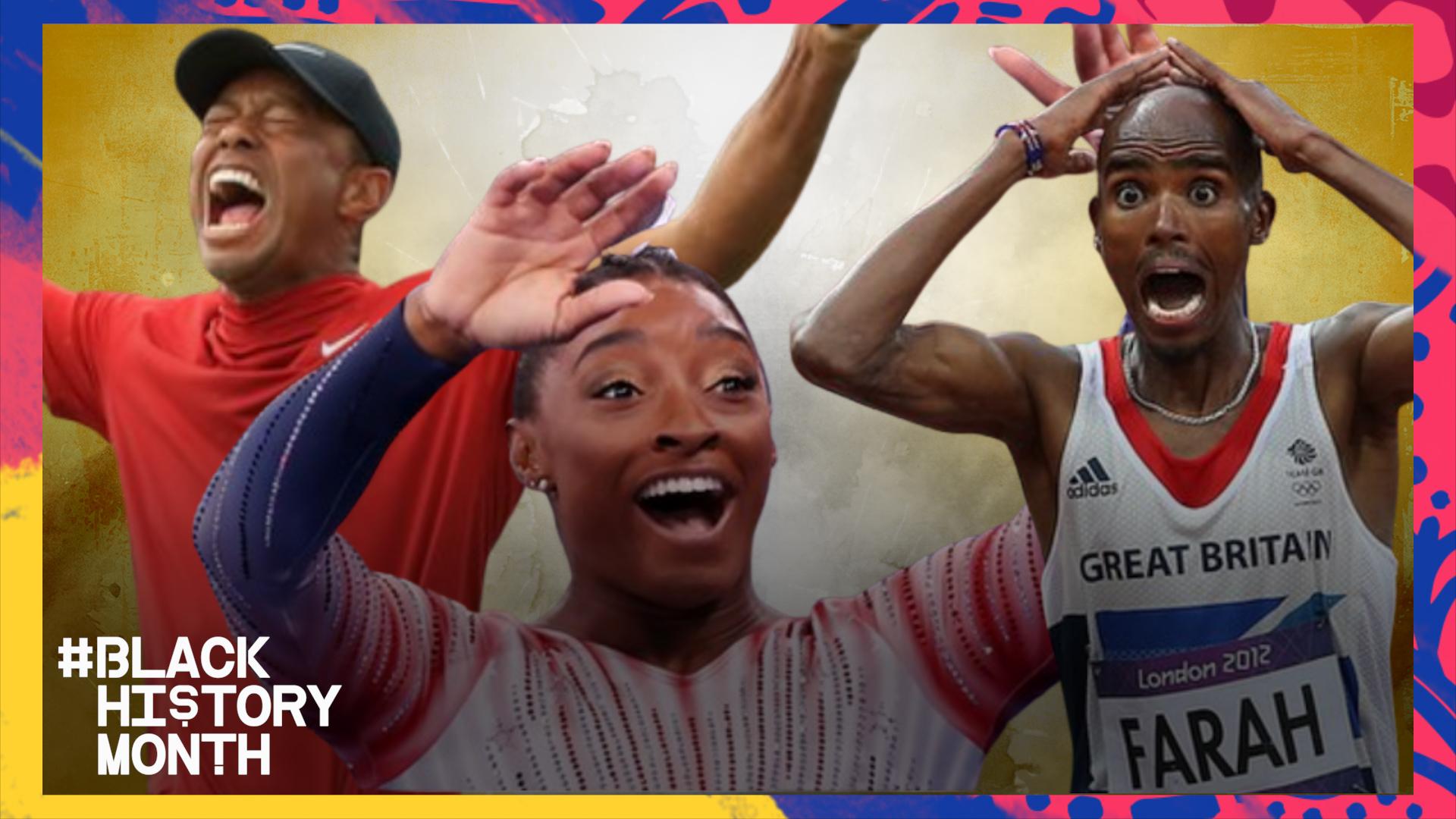
- Published3 October 2023
